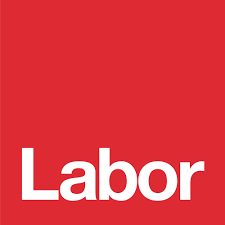No desire for a water mining industry on Northern Rivers: Saffin
THERE is no desire for a water mining industry in the Northern Rivers region. This prevails across the community and is evidenced in part by Labor and the Nationals both seeking reviews about the impacts of the industry on our groundwater. Labor called for a comprehensive review, a halt to any more licences and support to the Local Governments not to process any development applications pending. The Nationals sought the Chief Scientist to undertake an Independent Review of the Impacts of the Bottled Water Industry on Groundwater Resources in the Northern Rivers Region of NSW.
The Chief Scientist has provided an Initial Report and the most telling finding in the Initial Report states:
It is evident that the availability of existing data sets is non-uniform and in some cases no data is yet available.
Given this key finding it is self-evident that the industry cannot be allowed to expand.
During the NSW State election I secured a strong commitment from the State Parliamentary Leadership “That a Labor Government would undertake an immediate comprehensive review and support the Northern Rivers Local Governments in suspending the granting of DAs until such a review is completed.” That commitment stands.
I further stated then that, “I cannot support the granting of another licence for water extraction when there is no comprehensive assessment on the impact on the water table and aquifers here in the Northern Rivers and no comprehensive study on the impacts on communities.
Farmers can be assured their right to extract water for their farming activities is not part of the comprehensive review.
Prior to this at the September 2018 Country Labor Conference, delegates voted in favour of protecting our aquifers, recognising that we had huge gaps in both knowing where the aquifers were and the impact of various activities on them.
The first time I was approached during the election about this industry was when I was shopping in Murwillumbah. A long-term local farmer asked me to help stop it.
I attended a meeting in the Uki Hall organised by the Tweed Water Alliance, with approximately 300 people present. There was a large number of Greens supporters who of course did not support it, but other community members who also did not support it.
I got asked about the existing businesses and I said that they never should have been allowed to start but they are there.
The questions I considered at the time and that people sought answers for are:
- Are there sustainable groundwater extraction limits in the Northern Rivers region, and are the current or proposed groundwater monitoring bores sufficient? Unknown. (Rous County Council’s 2014 Future Water Strategy predicts that by 2024 demand for water will match what can be supplied and that by 2060 expected demand will exceed reliable supply by 6,500 megalitres each year.) The Save Alstonville Aquifer Community Group included this in in their submission in response to the Initial Report.
- Given what we know about water need, water usage for the general population and farming needs, is this an industry that is sustainable? No.
- How many plastic bottles are used to sustain this industry? The Initial Report found that the industry could not operate with glass bottles for inter alia the weight. [3. …There are no viable alternatives to plastic bottles for water for large quantity markets, given the weight of glass (Sections 2.2.3 and 2.2.4).]
- Is it therefore sustainable to expand an industry that is adding to plastic pollution on a large scale, with the NSW Government preparing a wholisitc plastic waste plan, and the NSW Opposition introduction of a bill to prohibit single use plastic? No.
- Is it desirable to have these truck movements traversing the same roads as farming and local families and school buses moving through small villages? No.
I have not seen any evidence to date that would cause my position to change. Water is allocated without knowing the full impact and that needs to change. It is treated as an endless supply, but it is a finite resource. The Chief Scientist’s Initial Report consolidates my position.

